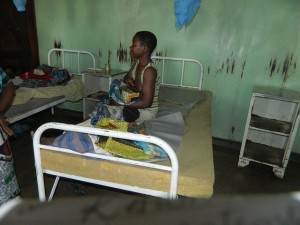Ntaja, Malawi … Wilson Tembo has been directing the distribution of medical supplies for the Malawi Project for a number of years. He travels to hospitals all over the country to access supply needs and assist in filling them. It would seem because of his frequent visits he would be accustomed to the shortages, the needs and the critical nature of healthcare. However, as with almost all who assist in Malawi the view of the appalling conditions and life-threatening shortages never seem to become easier. On a recent trip to Ntaja he filed this report:
“During my recent visit to four health centres in southern Malawi, it was shocking to witness hundreds of children failing to receive anti-malarial drugs because the facilities had run out. Long lines of patients stood in the scorching sun waiting to get help. During my time at this healthcare facility, one of the health workers expressed serious concern over the continued drug shortage at the centre. ‘As we speak’, he said, ‘there is no stock for anti-malarial drugs’. He further noted due to transport problems, women and children are dying at the facility because they cannot be referred to the district hospital in time to save them. The larger facility is only 50 kilometers away. The four facilities of Ntaja, Kawinga, Namanja and Nayuchi share just one ambulance. This forces patients to wait for hours before being picked up for further treatment at a second tier facility. For some their turn in the ambulance comes too late.”
The country has for decades experienced an erratic flow of medical supplies, drugs and equipment. The challenges these people face is a true representation of the problems people face throughout the nation when it comes to access to health care.
Pictured are patients laying on beds with torn mattresses, no linen and no place for guardians to stay while caring for patient needs.

